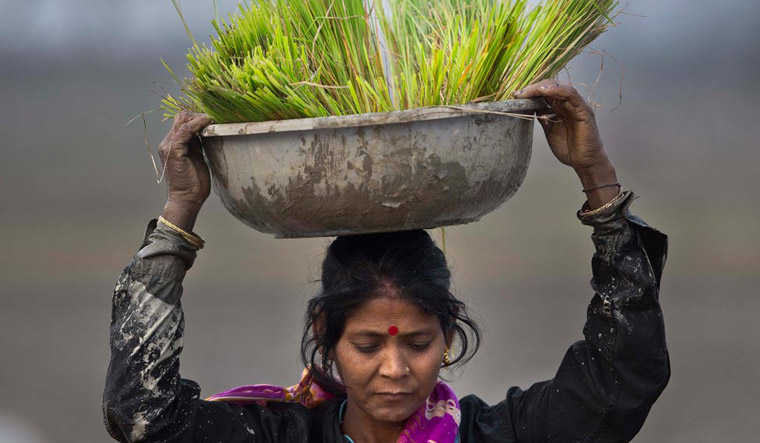The government may not be able to ensure farmers get the promised Minimum Support price of one and a half times the cost price, as this would push up the wholesale and retail prices of pulses and grains, cautioned industry body ASSOCHAM. This is going to be the most challenging times for policymakers, according to the trade and industry body.
The government promised farmers in the country a Minimum Support Price of one-and-a-half times the cost price in its latest Budget.
“The government will find it a ‘tightrope walk’ situation in managing the conflicting interests between farm producers and consumers, with inflation maintaining an upward trend for last six months in a row and possibly moving towards six per cent mark that can make general households restive,” said ASSOCHAM president Sandeep Jajodia in a press release on Monday.
The price of pulses had dropped based on market forces through 2017. The trade and industry body, in fact, commented that the government had raised farmers' expectations.
The ASSOCHAM chief also said the country would soon be in an election mode, first in key states like Madhya Pradesh, Chhattisgarh and Karnataka and then, the general elections in 2019. “The Budget with a huge focus on agriculture has raised expectation level in rural landscape. Besides, entire national discourse has shifted to problems of rural India. The government would find it very difficult to adjust MSPs which do not appear to be in line with promises. Even the formula for costing is being debated in the media and among agricultural economists and farmers’ organisations. That means the pressure on retail inflation is bound to be seen.”
The Reserve Bank of India had skirted the issue of the impact that MSP would have on inflation, at a time when the cost of vegetables, eggs and fuels are headed northward.
Also Read
- Normal monsoon predicted for 2024. Is it enough to bring down inflation?
- With inflation likely to cool and growth strong, shallow rate cuts likely in the second half of FY25
- Inflation has slid again in Europe. What does this mean for interest rates?
- Retail inflation at 5.09 per cent in February, almost unchanged from January
As the central bank has highlighted in its credit policy document, households’ inflation expectations, measured by the Reserve Bank’s survey of households, remained elevated for both three-month ahead and one-year ahead horizons. This even as inflation expectation for one-year ahead horizon moderated marginally. The RBI said inflation outlook beyond the current year is likely to be shaped by several factors, including crude prices.
The government may not be able to ensure farmers get the promised Minimum Support price of one-and-a-half times the cost price, as this would push up the wholesale and retail prices of pulses and grains, cautioned industry body ASSOCHAM. This is going to be the most challenging times for policymakers, according to the trade and industry body.
“The government will find it a ‘tightrope walk’ situation in managing the conflicting interests between farm producers and consumers, with inflation maintaining an upward trend for last six months in a row and possibly moving towards six per cent mark that can make general households restive,” said ASSOCHAM president Sandeep Jajodia in a press release on Monday.
The price of pulses had dropped based on market forces through 2017. The trade and industry body, in fact, commented that the government had raised farmers' expectations.
The ASSOCHAM chief also said the country would soon be in an election mode, first in key states like Madhya Pradesh, Chhattisgarh and Karnataka and then, the general elections in 2019. “The Budget with a huge focus on agriculture has raised expectation level in rural landscape. Besides, entire national discourse has shifted to problems of rural India. The government would find it very difficult to adjust MSPs which do not appear to be in line with promises. Even the formula for costing is being debated in the media and among agricultural economists and farmers’ organisations. That means the pressure on retail inflation is bound to be seen.”
The Reserve Bank of India had skirted the issue of the impact that MSP would have on inflation, at a time when the cost of vegetables, eggs and fuels are headed northward.
As the central bank has highlighted in its credit policy document, households’ inflation expectations, measured by the Reserve Bank’s survey of households, remained elevated for both three-month ahead and one-year ahead horizons. This even as inflation expectation for one-year ahead horizon moderated marginally. The RBI said inflation outlook beyond the current year is likely to be shaped by several factors, including crude prices.


